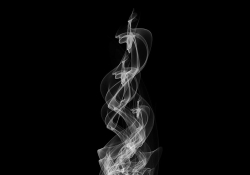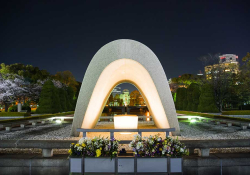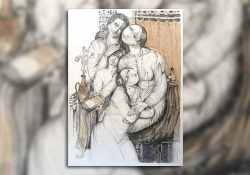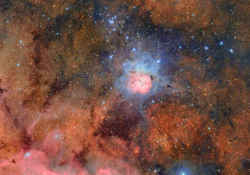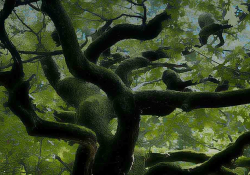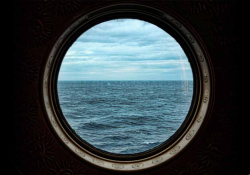Four Chilean American Poems

Domestic Life
Domestic life
is the fastest way to kill a poet’s madness
and the fastest way to kill the poet.
I read Claudia my poem about Roberto Bolaño.
Claudia looks at me and after a beat
she asks, “Hungry? The salmon fillets
are still in the fridge.”
From the deserts of death
where he lives now, Bolaño winks his eye at me and says,
“I didn’t know you liked
salmon fillets, Mauricio.”
Claudia has gone out, but she’ll soon be back,
like Christ when he got bored.
Meanwhile I try to understand
what’s the matter with the salmon
and whether or not I should write this poem.
“Stop spilling milk all over the kitchen!” she shouts.
I look for Bolaño, but this time his visage
has evaporated among my books
and the food stuck to the dirty plates.
Maybe we’re all already dead
like the motionless fish dragged downstream.
Indian Territory
A century ago
the state of Oklahoma didn’t exist.
This piece of the world
was simply
called Indian land,
a red land
with little lakes everywhere.
This morning
when I go out to get the mail
I bump into the mailman.
I’ve seen him many times
at the entrance to my building.
But now, for the first time,
we talk.
He comes up to me
with a certified letter from Chile.
He explains something about how these letters work
and then tells me his name.
He’s Leo Tippeconnie.
He’s a Navajo Indian
and he must be about 60.
His dark, distant face
reminds me of something I’ve seen before.
He tells me he’s spent 25 years
working as an Oklahoma mailman.
He asks me where I’m from.
“Chile,” I answer.
He looks at me with curiosity.
“What’s Chile?” he asks.
“A country in South America.”
“And where is this country?”
“Far away, 5 thousand miles from here.”
He furrows his brow, I guess Chile
is a hard country to imagine.
“Get cold there?”
“Only in the winter.”
“I’m from Oklahoma. It gets cold here, sometimes.”
“You’re telling me,” I answer.
“Well,” he says, “sign here.”
I obey and sign.
Before he leaves, he adds:
“We’re still at war
with the white man.”
He says this smiling.
“I’m not white,” I answer.
“I know,” he tells me.
“We’re not at war with you.”
He smiles and I smile.
We are two men who smile
when they talk about war.
“Is that all?”
“Yes.”
“Chile?”
“Exactly, Chile.”
“Nice,” he exclaims, satisfied.
He holds out his hand
and we say goodbye.
The sun at midday shines
on the red lands of Oklahoma
and the little lakes
of this part of the world
—like eager fountainheads—
pass the sunshine back up to the sky.
Leo Tippeconnie
slowly
moves away
in the mail truck.
Once he hits Highway 9
I lose sight of him.
He’s going south,
probably heading to Chile,
5 thousand miles away,
in his little white truck
with blue letters on the side.
Chávez and Chilean Poetry
In 2004
I was a student living in Cincinnati.
It was a little shameful
for my age and my CV.
That year
the poet Antonio Gutiérrez
came to my university.
He was Venezuelan
and I, Chilean.
So it was only right
that we should talk about Chávez and Chilean poetry.
In the morning on the way to the language department
Chávez and Chilean poetry.
At lunchtime, Chávez and Chilean poetry.
At night, nothing
(we weren’t that crazy).
One day we took the car to Washington.
A 16-hour drive there
and 16 more hours back.
Another year we went to New York
to see an exhibit on Reverón, the painter,
another 16 hours there and the same back again.
By that point
I was an expert on Venezuela
and Antonio taught classes on Chilean poetry.
But the last time we did not go
to Washington or to New York,
we just crossed the Ohio River
over that bridge
to which Huidobro dedicated a poem.
We didn’t talk about Chávez or Chilean poetry,
this time we kept quiet.
Kentucky surfaced slowly,
as if dredged up from some swampy dream,
Chávez seemed as dead as Chilean poetry
and the firmament parted in two
like a great yellow bird
breaking off from the sky
without making a sound.
4 to 8 Weeks
I was going toward Oklahoma City
driving up I-35.
I was going nowhere, really.
It was a boring Saturday afternoon
and I just wanted to get out in the car,
to drive for a few hours then come back.
The whole world knows
there’s nothing to see in OKC,
“it’s just a collection of houses.”
But that’s where I was going, up I-35,
the same road that leads to Minneapolis
rambling and in a good mood,
wishing myself the best.
I was going 70 miles per hour
listening to a local radio station
when suddenly they appeared
(on the radio, I mean)—
a religious show about investing money.
There was a woman and two men.
She wanted to invest $150,000.
The men introduced themselves as Christian Financial Advisors.
She said, “I need to know how to invest my money.”
They told her to stay calm and pray.
The woman said, “Okay, I’ll stay calm and I’ll pray.”
They went on that she needed to pray a whole lot and be honest.
She said she would pray a whole lot and be honest.
“He’ll tell you what to do with that money,” they claimed.
“But $150,000 is a big number,” she responded.
“That’ll take a little time, 4 to 8 weeks.”
Don’t despair, such timing is normal in these cases.
There are so many wretched people in this country,
cancerous, poor, suicidal, alcoholic,
besides the madmen and women of the plains
always begging for extravagant, selfish desires.
“God can’t keep up in America,” they explained.
The woman said, “I’ll be patient, I won’t be selfish.”
Then they asked if she needed anything else.
She answered, “No.” And thanked them for asking.
Then an army veteran called in,
but I couldn’t make out what he was saying,
the signal was cutting in and out
until it was finally lost.
When I got to Oklahoma City I slowed down.
“I just have to pray and be honest,” I said to myself.
“Then the signal will come by itself.”
“I have to wait 4 to 8 weeks.”
When I got to Devon Tower, I turned around and came back.
The radio stayed silent.
I got back on I-35, this time heading south.
I accelerated until I hit the cruising lane,
I started listening to the high-pitched whistle of the wind
coming in through the car windows.
I thought, “That’s probably my signal.”
Then I remembered, “It hasn’t been 4 weeks
yet, it hasn’t even been an hour.”
Sometimes the wind is just the wind.
I kept on driving.
It had been a long Saturday afternoon.
Translations from the Spanish
Editorial note: From Domestic Life (Alliteration, 2025). Reprinted by permission of the author.



